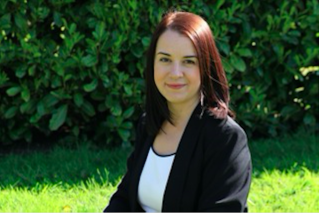RENTERS who claim Universal Credit in Barnsley aren’t receiving enough to cover their bills, according to a homelessness charity.
Research published by Centrepoint, which operates services in Barnsley, shows that housing support payments given to people renting properties in the borough are more than £100 short of their monthly rent.
The analysis of Office for National Statistics figures on average accommodation costs compares the local rental market with the Local Housing Allowance (LHA) rate.
LHA rates - used to define how much Universal Credit or housing benefit a claimant living in private rented accommodation can receive - increased in April after a five-year freeze, to help the scores of renters rocked by Covid-19.
The rates, worked out on geographical area, define the maximum benefit available to a claimant based on who they live with, and reduce with the number of spare bedrooms in a property - the controversial ‘bedroom tax’.
Even with the recent change, charities have claimed, the majority of renters will not have their full rent covered by LHA.
Most people under 35 will receive the lowest ‘shared accommodation’ rate, even if they live alone, with certain categories of people able to claim the slightly higher ‘one-bedroom’ rate - such as care leavers and homelessness hostel leavers, who can do so from 2023 as per the Budget announcement in March.
And the shared accommodation rate in Barnsley stands at £267 per month - £111 short of the average monthly rental price for a room in a shared house in the borough.
Balbir Chatrik, director of policy and communications at Centrepoint, said: “Universal Credit is forcing too many young people to choose between paying rent and food.
“These are impossible choices to make at the best of times but, in the middle of an unprecedented health and economic emergency, it’s clear the rules need urgent change.
“The fact is that ministers already know this. That is why the Chancellor announced vulnerable young people would eventually receive more support with rental costs in his Budget and why, at the beginning of lockdown, he uprated local housing allowance to bring it closer to be in line with the true cost of renting.
“These were important first steps but coronavirus and its fallout means we can’t stop there. It was never rational to wait three years before allowing vulnerable young people the chance to live independently and it makes even less sense now.”
Universal Credit applications have soared since lockdown started in Barnsley, with 25,530 people claiming the benefit in May - an increase of 14.3 per cent over the previous month.
Barnsley is one of 88 local authority areas included in the Centrepoint study with a disparity of more than £100 between the monthly cost of renting a room and the lowest LHA rate, and has the widest gap in South Yorkshire.
Of 247 areas, only four see the LHA rate cover the average monthly cost of a room.
Although a five-month emergency freeze on evictions has been in place since March, critics such as local MPs John Healey and Stephanie Peacock have said this will lead to a wave of proceedings that could see thousands in Barnsley facing eviction if they’ve built up significant arrears.
There are more than 88,000 privately rented properties in Barnsley, with two-thirds of tenants having no savings and those between 16 and 24 spending up to half of their income on rent, according to the government’s English Housing Survey.
Balbir added: “The government won plaudits for its early work with rough sleepers and help with renters - that will count for nothing if it now fails to follow through and leaves some of our most vulnerable young people facing destitution and homelessness.”




























